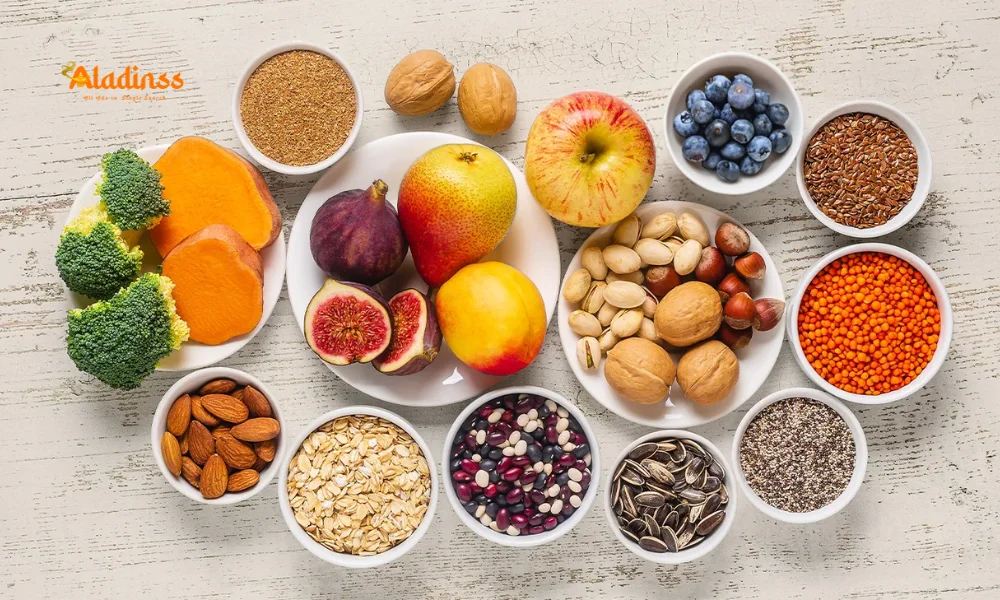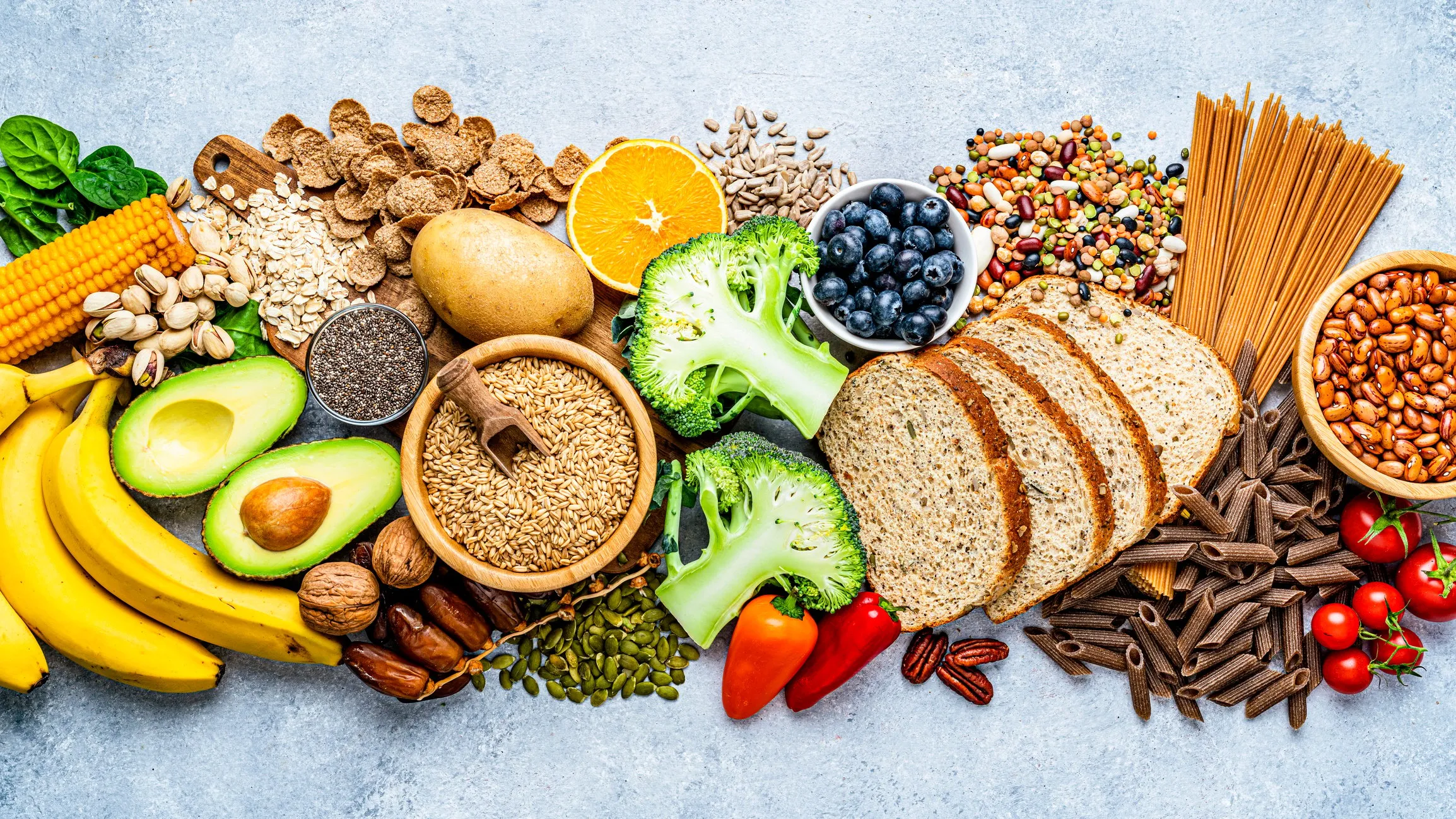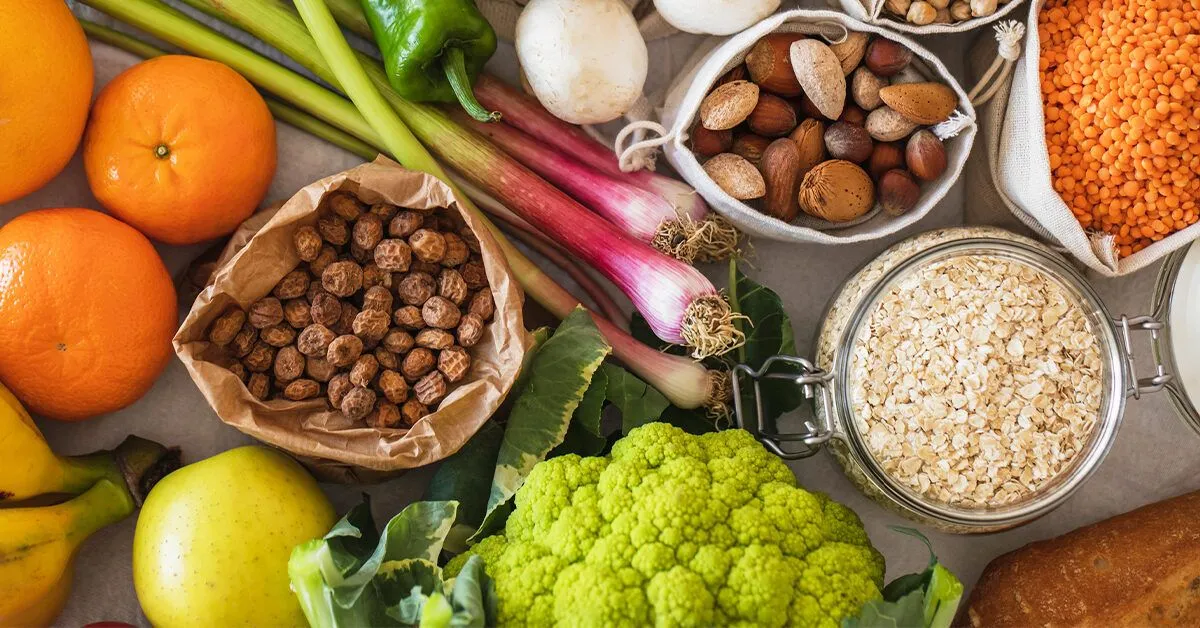Surgeon Explains 5 Key Roles of Fibre for Digestion and Overall Health: Bowel Regularity to Blood Sugar Control

Surgeon Explains 5 Key Roles of Fibre for Digestion and Overall Health: Bowel Regularity to Blood Sugar Control
Fibre, often overlooked in daily diets, plays a pivotal role in maintaining digestive health and overall wellness, despite not being digested by the body. In this latest health report from HT Lifestyle, senior consultant surgeon Dr. Pankaj Gupta from RG Hospitals details how fibre passes intact through the digestive tract, supporting gut motility, bowel function, and beneficial bacteria growth. This breaking news update addresses the widespread issue of inadequate fibre intake, particularly among women, and emphasizes incorporating fibre-rich foods into meals for optimal health. With Google trends showing spikes in searches for "fibre benefits digestion" and hashtags like #FibreForHealth trending on social media, Dr. Gupta's insights provide essential guidance for improving daily nutrition.

Understanding the Unique Nature of Fibre in Nutrition
Unlike proteins, carbohydrates, or fats, dietary fibre is not broken down by digestive enzymes, allowing it to travel through the gastrointestinal tract largely unchanged. This indigestible quality is precisely what makes fibre indispensable for health. Dr. Pankaj Gupta explains that fibre's ability to add bulk to stool and ferment in the colon supports essential bodily functions. Soluble fibre dissolves in water to form a gel-like substance, while insoluble fibre adds volume and speeds transit time. Both types are crucial, with soluble aiding in cholesterol and blood sugar management, and insoluble promoting regularity.
Many people, especially in urban settings, consume far below the recommended 25-30 grams daily, leading to issues like constipation and poor gut health. Women are particularly at risk due to lower baseline intake and hormonal factors affecting digestion. Dr. Gupta stresses the need for diverse sources, including fruits, vegetables, whole grains, and legumes, to meet requirements. This focus on fibre diversity aligns with current wellness trends, where #GutHealth and #FibreRichDiet are popular on platforms like X, encouraging balanced nutrition for long-term vitality.

The Growing Concern of Inadequate Fibre Intake
Inadequate fibre consumption is a global health concern, contributing to rising cases of digestive disorders and metabolic issues. Studies indicate that only about 5% of people meet daily recommendations, with women facing higher deficiencies due to dietary patterns and physiological needs. Dr. Gupta notes that low fibre diets lead to sluggish digestion, increased toxin exposure, and imbalanced gut microbiota, potentially exacerbating conditions like obesity and diabetes. Urban lifestyles, reliant on processed foods, further compound this problem, making conscious efforts to include fibre essential.
Addressing this gap requires education on fibre's roles beyond digestion, such as cardiovascular protection and weight management. Public health campaigns and nutrition labels now highlight fibre content, aiding consumer choices. Dr. Gupta advocates for gradual increases to avoid bloating, starting with 10-15 grams and building up, paired with ample water intake to maximize benefits. This approach not only improves immediate symptoms but also supports long-term health, aligning with trending searches for "daily fibre requirements" and preventive wellness strategies.
Role 1: Supporting Bowel Regularity with Fibre
One of fibre's primary roles is promoting bowel regularity by increasing stool bulk and softening its texture. Insoluble fibre, found in wheat bran and vegetables, absorbs water to create softer, bulkier stools that move easily through the intestines, reducing constipation risks. This process stimulates peristalsis, the wave-like muscle contractions that propel waste. For those prone to irregular bowels, incorporating 5-10 grams of insoluble fibre daily can significantly improve frequency and ease.
Dr. Gupta highlights that consistent fibre intake prevents straining, which can lead to hemorrhoids or fissures. Hydration is key, as fibre without water can worsen issues. Studies show that high-fibre diets reduce constipation by 30-40%, benefiting elderly individuals and pregnant women particularly. Simple additions like oatmeal for breakfast or salads at lunch can achieve this, fostering a smoother digestive experience and overall comfort.

Role 2: Promoting Healthy Gut Microbiota
Fibre serves as prebiotics, nourishing beneficial gut bacteria that ferment it into short-chain fatty acids like butyrate. These compounds enhance gut barrier function, boost immunity, and reduce inflammation. Dr. Gupta explains that a diverse microbiome, supported by varied fibres from sources like onions, garlic, and bananas, improves nutrient absorption and mental health via the gut-brain axis. Imbalances, or dysbiosis, link to conditions like anxiety and autoimmune diseases.
Research indicates that 20-25 grams of prebiotic fibre daily can increase beneficial bacteria by 20%, aiding digestion and overall vitality. For those with leaky gut, fibre helps seal intestinal linings, preventing toxins from entering the bloodstream. Incorporating fermented foods alongside fibre amplifies these effects, creating a synergistic approach to gut health that trending wellness discussions often overlook.

Role 3: Managing Digestive Disorders Through Fibre
Fibre-rich diets mitigate digestive disorders by regulating movements and reducing strain. For IBS sufferers, soluble fibre like psyllium soothes the gut, alleviating bloating and cramps. Diverticulitis risk decreases as fibre prevents pocket formation in the colon, while hemorrhoids benefit from softer stools that minimize pressure. Dr. Gupta recommends 25 grams daily for prevention, noting gradual introduction to avoid gas.
Clinical trials show fibre reduces IBS symptoms by 50%, offering a natural alternative to medications. For chronic conditions, personalized plans with a surgeon's guidance ensure safety, especially post-surgery. This role underscores fibre's preventive power, making it a cornerstone of gastrointestinal wellness.
Role 4: Fibre's Impact on Blood Sugar and Cholesterol
Soluble fibre slows sugar and fat absorption, stabilizing blood glucose levels and preventing spikes that lead to diabetes. By binding bile acids, it lowers LDL cholesterol, supporting heart health. Dr. Gupta points out that 5-10 grams daily can reduce cholesterol by 5-10%, beneficial for metabolic syndrome patients. Pairing fibre with low-glycemic foods enhances these effects.
For diabetics, fibre improves insulin sensitivity, with studies showing HbA1c reductions. This interconnected role highlights fibre's systemic benefits, influencing digestion while safeguarding cardiovascular and endocrine systems.

Role 5: Enhancing Satiety and Weight Management
Fibre promotes satiety by expanding in the stomach, signaling fullness to the brain and curbing overeating. This aids weight control, indirectly easing digestion by reducing caloric intake. Dr. Gupta notes high-fibre meals lower ghrelin, the hunger hormone, supporting sustainable weight loss. Vegetables and legumes, low-calorie yet fibre-dense, are ideal.
Research links 14 grams of fibre per 1000 calories to 10% weight loss over months. For overall health, this role ties into metabolic regulation, making fibre a natural appetite suppressant without side effects.
Practical Ways to Increase Daily Fibre Intake
Boosting fibre involves simple swaps: choose whole grains over refined, add beans to salads, and snack on fruits. Dr. Gupta suggests starting breakfast with oats or smoothies, lunch with veggie stir-fries, and dinner with quinoa. Hydrate adequately to prevent discomfort, aiming for gradual increases.
Supplements like psyllium can help if diet falls short, but whole foods provide additional nutrients. Tracking intake via apps ensures balance, aligning with #HealthyEating trends for digestive and holistic health.
Comment / Reply From
No comments yet. Be the first to comment!






